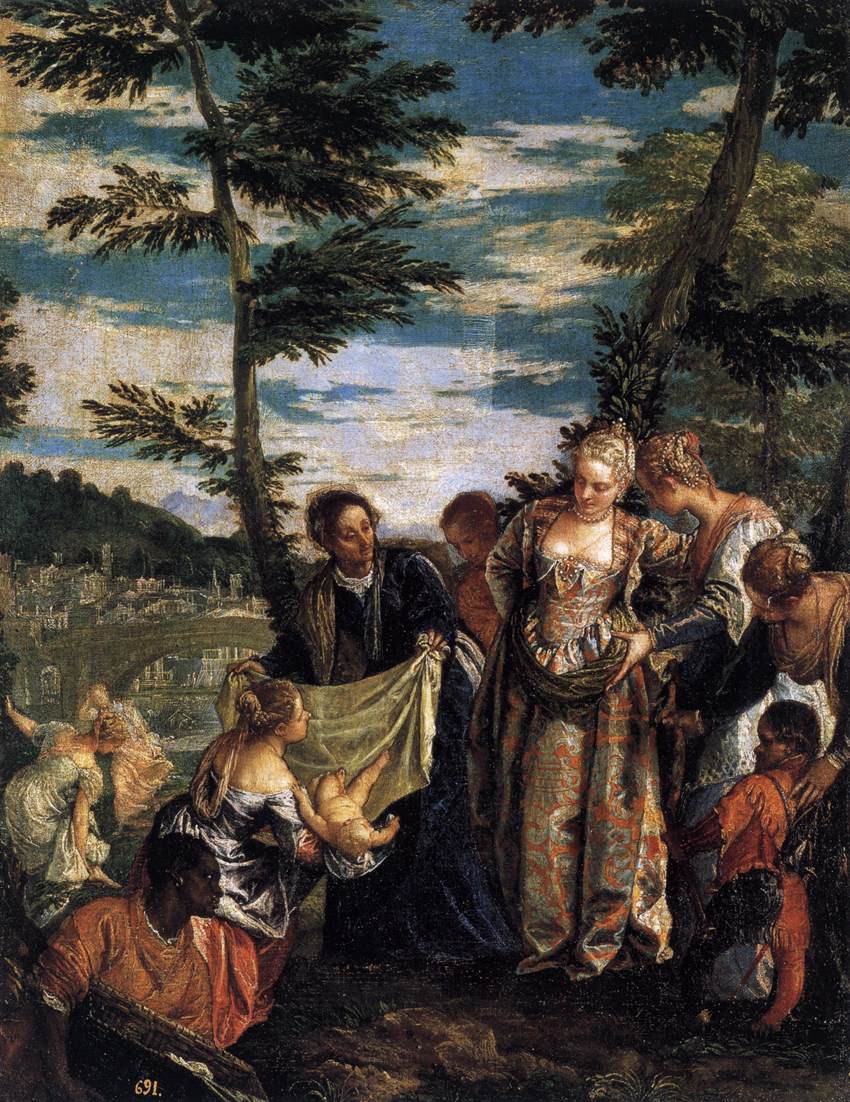Description
"The Finding of Moses" is a painting made by the renowned Italian artist Paolo Veronese in the 16th century. This masterpiece stands out for its baroque artistic style, which is characterized by its drama, movement and exuberance.
The composition of the painting is impressive as Veronese manages to capture the viewer's attention by creating a scene full of action and emotion. The central figure of the painting is Moses, a baby wrapped in a white scarf, who is discovered by the pharaoh's daughter while bathing in the Nile River. The princess, accompanied by a retinue of nobles and servants, is in the foreground, while lush landscapes and monumental architecture are seen in the background.
The use of color in this painting is exquisite. Veronese uses a rich and vibrant palette, with warm tones contrasting with cool ones, creating a sense of depth and realism. The intense colors of the characters' clothing, such as red, blue, and gold, further highlight the beauty of the scene.
The story behind this painting is based on a biblical passage from the book of Exodus, which narrates how Moses' mother places him in a basket and leaves him in the Nile River to save him from Pharaoh's order to kill all Hebrew male babies. The painting depicts the moment when the pharaoh's daughter discovers the child and decides to raise him as her own.
Although "The Finding of Moses" is a well-known work, there are lesser-known aspects that are worth highlighting. For example, the original size of the painting is relatively small, with dimensions of 50 x 30 cm. Despite its small size, Veronese manages to convey a great deal of detail and emotion in this masterpiece.
In conclusion, "The Finding of Moses" by Paolo Veronese is a fascinating painting that stands out for its baroque style, its dynamic composition, masterful use of color and its depiction of a biblical story. Despite its relatively small original size, this masterpiece continues to captivate viewers with its beauty and expressiveness.

